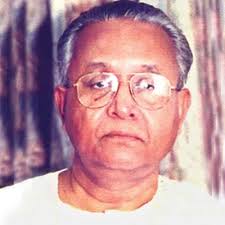The Language Movement and independence

Although it is addressed as the language movement of 1952, yet the movement really started in 1948, just after the declaration of Mr. Jinnah, the governor general of Pakistan that Urdu and Urdu shall be the only state language of Pakistan. As soon as Jinnah declared it Bengali youths including Sheikh Mujib protested strongly saying no to Urdu. Pakistani ruler could not understand that it was also a no to Pakistan. Jinnah who probably had little idea about the dissatisfaction of the people of East Pakistan thought that as he was the Father of the Nation, the people of East Pakistan would welcome the declaration and accept Urdu as the state language of Pakistan. But that did not happen.
The language movement of 1952 may be termed as the first political revolt of the Bangalee speaking people of the East Pakistan against the declaration of Mohammad Ali Jinnah who tried to enforce Urdu language of only 3 percent people of West Pakistan as the state language of Pakistan. Jinnah was stirred and probably got the idea about the sentiment of the Bangalees.
In fact, as early as 1948, the people of East Pakistan i.e., the Bangalees easily understood the motive of the Pak ruler. If disparity is an economic term, it became always with people of East Pakistan within the shortest span of life immediately after the creation of Pakistan. Bangalees could feel that although they fought for creation of Pakistan and it was because of them that Pakistan was created. The central government of Pakistan started their governance with the policy of persecuting Bangalees in all forms. The growing dissatisfaction was aided by the declaration of Jinnah making the Bangalees fell what exactly was the evil design of the West toward them. The decision for aggression on the language of Bangalees was really a conspiracy to keep them away from the governance of the country. But the Bangalee youths established their right to speak in Bangla through sacrificing their lives. The language movement became probably successful but the movement did not end then.
After 24-year-long arduous movement
under the prudent leadership of Bangabandhu Sheikh
Mujibur Rahman Bangladesh came into being as an
independent state in the world map
Bangalees were not satisfied with that achievement. The language movement which was a cultural one got transformed into the movement for regional autonomy. The election in 1954 in East Pakistan led by Bhasani, Suhurawardy, Sher-e-Bangla and Sheikh Mujib made the result favourable for the Bangalees. The result also exposed that the people were aggrieved against the central government and the Muslim League. The economic disparity that created by the Pak rulers made it clear that Bangalees are really growing animosity against Pakistan for the kind of exploitation that started on the East wing. The 10-year military rule of General Ayub Khan exploited the East wing to develop West Pakistan. It is Sheikh Mujib, the real Tiger of East Bengal came out with six-point programme and the movement for regional autonomy. He mobilized and motivated the people from Teknaf to Tetulia in support of the movement of regional autonomy. Sheikh Mujib was the only answer to the extreme form of oppression committed by the West. His six-point programme announced with the spirit of language movement gave the demand for regional autonomy a concrete shape. People gave mandate on six-point programme in the 1970 election securing 167 seats out of 169. In fact, the victory in this election led us to the War of Independence. The Pakistani rulers refrained from handing over power to Bangabandhu Sheikh Mujib, the leader of the majority party. They postponed the 3rd March session of the parliament for indefinite period. Bangabandhu called for complete non-cooperation movement that turned into an armed struggle following his declaration of independence in the early hours of March 26, 1971.
If the language movement did stop when the Pak rulers admitted Bangla as state language of Pakistan things could have stopped then. The success of Sheikh Mujib is that he transformed the cultural movement into a political one and the door for independence thereby opened. Those who say that Sheikh Mujib’s participation was not significant we must tell them that it is only Mujib who deserves absolute credit for transforming language movement into independence. That is why Sheikh Mujib became the Father of the Nation and the greatest Bengali of all ages ever produced by Bangladesh.
The values incorporated in the constitution of the newly independent country Bangladesh like democracy, Bengali nationalism, non-communalism an socialism are the outcome of the cultural movement launched in East Pakistan long before our independence. The culture of Bangladesh is therefore a mixed culture of the four major communities i.e., the Hindus, the Muslims, the Buddhists and the Christians living in the then East Pakistan. All are living as Bengalees. These cultural ingredients ultimately became the four cardinal principles of independent of Bangladesh. If we scan the language movement we will find the ingredients that act as incitement of the movement like both political and cultural in nature. Since politics is the highest form of culture in a progressive society, the people of Bangladesh under the able leadership of Sheikh Mujib could intermingle both culture and politics together. The demand for independence was logical as the people of the East Wing wanted an end to the despotism, exploitation and economic disparity. It was the need of the hour to have an independent state and separate identity for the Bangalees. The identity is Bangladesh, its national anthem and national flag. After 24-year-long arduous movement under the prudent leadership of Bangabandhu Sheikh Mujibur Rahman Bangladesh came into being as an independent state in the world map.
Dr S A Malek is a member of Awami League Advisory Council and President of Bangabandhu Parishad, former political adviser to the Prime Minister, member of parliament and columnist



